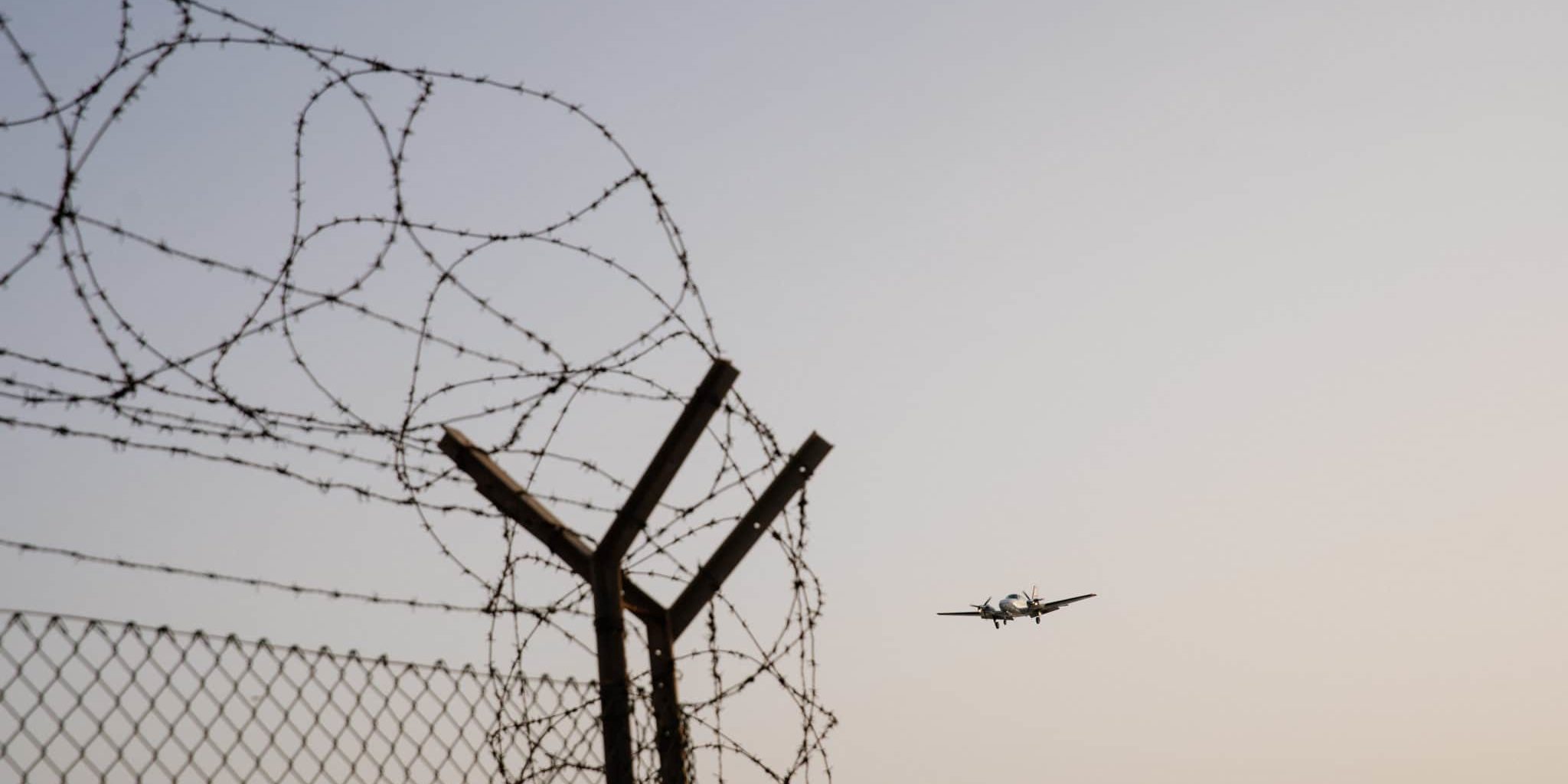Hello Lea, you are part of the authors’ collective mEUterei. What is behind it and why did you decide to write a book together?
Lea: The “mEUterei” is a collective of experts who have been campaigning against the European border regime for years. The mEUterei consists of activists, refugee workers, lawyers, migration and political scientists. The collective is currently predominantly made up of white cis women. To name this positioning seems relevant to us from a power-critical perspective. We ourselves are part of the societies that have led to the construction of Fortress Europe and maintain it. We are aware of our privileges and can openly criticise the existing capitalist, racist and (neo-)colonial systems of power without having to fear significant disadvantages, threats or even worse. During the process of writing the book Borderless Violence. EU’s Undeclared War Against Refugees*, we tried – also with the help of anti-racism activist friends – to reflect on these privileges and to sensitise our perspectives and language to them. As an elementary consequence of these privileges, we see ourselves as having a special responsibility to criticise and fight Fortress Europe wherever possible.
With this book, we try to show the systematics behind European border violence: The media and debates talk about deaths in the Mediterranean, violent pushbacks at the Greek-Turkish border and deportation jails across the EU as singular events. This book is an attempt to show that this racist-colonial violence is systematically exercised and structurally anchored. The violence against refugees that is happening in many places in the EU must be thought of together and put in relation to each other to bring about political and social change.
* So far, the book is only available in german
In your book, you talk about the “undeclared war of the EU against refugees”. You choose very clear rhetoric here. Why is it appropriate to speak of a systematic “war”?
Lea: The fact that hundreds of people die every year in search of protection and safety in Europe is a result of European policy. It is not a natural disaster but the result of decisions taken in Berlin, Brussels, Rome and other capitals. War is by definition a “conflict fought with weapons” – and the militarisation and armament of Europe’s external borders are steadily advancing. The budget of the European border protection agency Frontex has risen steadily in recent years, refugees are being shot at and the fundamental human right to asylum is now no longer worth the paper it was once written on – also as a direct consequence of Germany’s crimes.
You attest to the end of the so often emphasised “European values”. What do you mean by this and what do you think society needs for its compass of values to point in the right direction?
Lea: Europe prides itself on being the “cradle of human rights” and has even received a Nobel Peace Prize for upholding them. Yet the last decades have clearly shown that these rights – although touted as fundamental – do not apply equally to all people. Structural racism in the societies of the global North reaches far into the so-called “middle classes”. It is so deeply rooted that we perceive, for example, the suffering and death of Black people as less relevant, as less cruel, and accordingly, there is very little anger and outrage about being systematically left to die. The dehumanisation that has been taking place since the colonisation of Black people continues to have an effect today and the result is that the outcry over thousands of deaths at our external borders is absent.
The exploitation of the Global South, its nature and people, is the basis of the wealth of the North. The reappraisal of colonisation and its continuities must be addressed and overcome. A debate in society as a whole on the power systems that lead to the extreme gap between the Global North and the Global South is long overdue!
To achieve this, new narratives must be created. Our society and each individual must critically question and reflect on their own internalised racism. We need to join forces with decolonial and antiracist struggles and movements to counter boundless violence with boundless solidarity!












